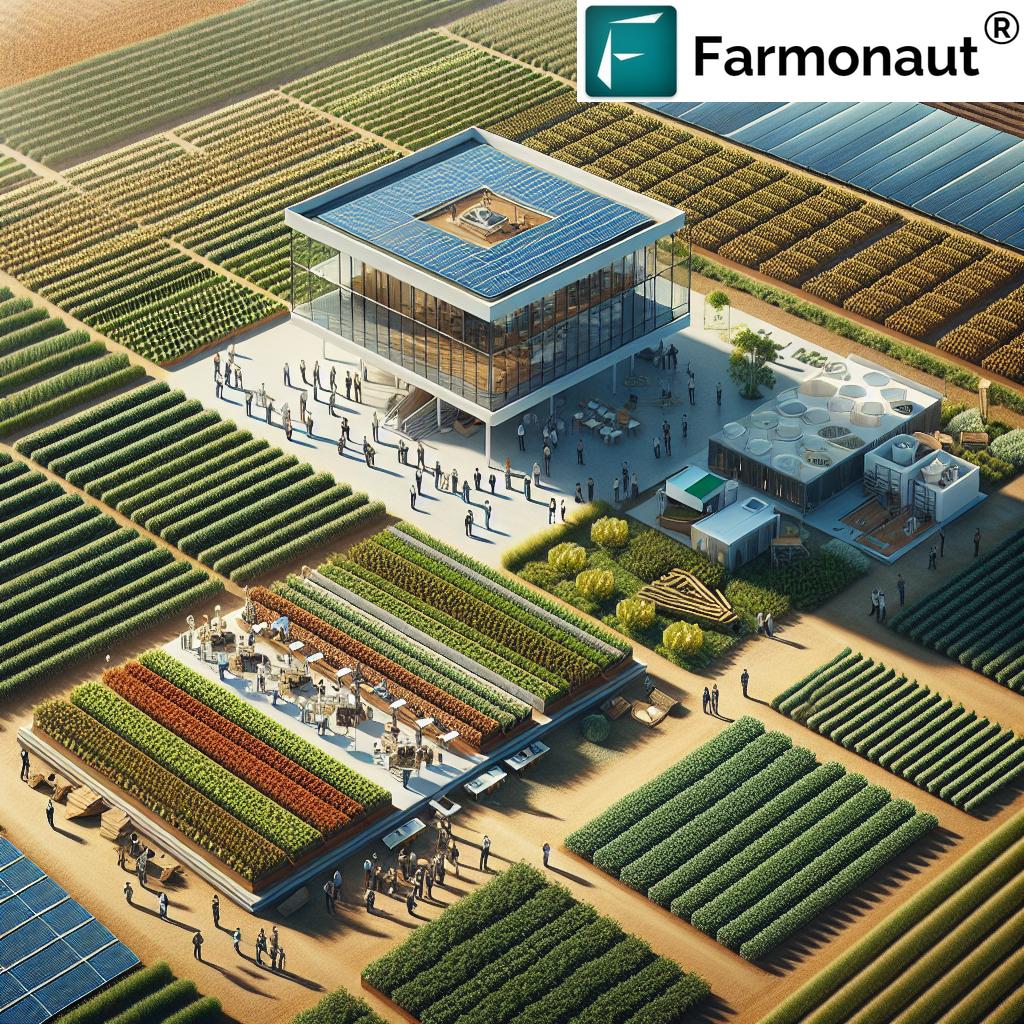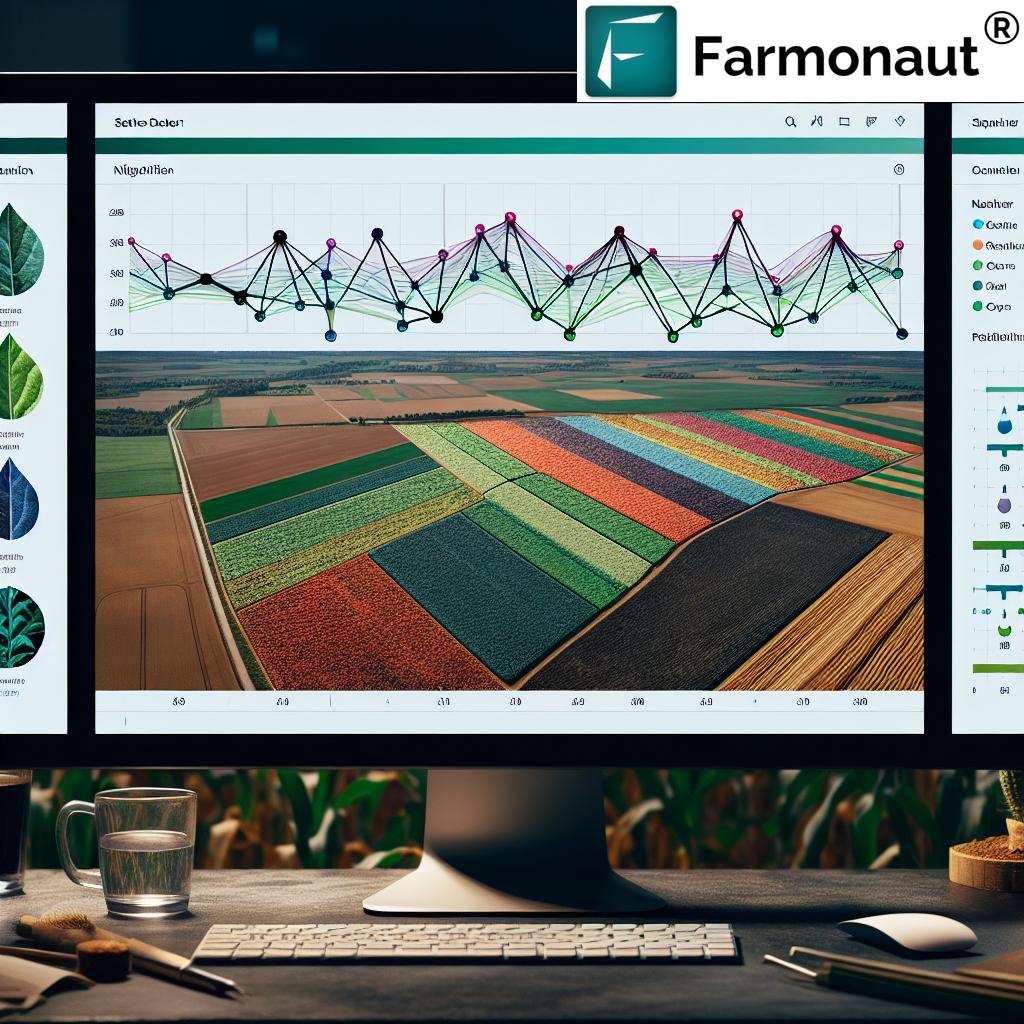Portugal’s CAP Strategic Plan: Driving Sustainable Agriculture and Rural Development in the EU
“Portugal’s CAP Strategic Plan aims to certify over 20% of agricultural land for organic farming by 2030.”
Welcome to our comprehensive exploration of Portugal’s Common Agricultural Policy (CAP) Strategic Plan, a groundbreaking initiative that is set to transform the landscape of Portuguese agriculture and rural development. As we delve into this crucial topic, we’ll uncover how Portugal is aligning its agricultural practices with the broader European Union (EU) objectives, fostering sustainability, and embracing innovation in the farming sector.

Understanding the CAP Strategic Plan
The Common Agricultural Policy (CAP) is a cornerstone of the European Union’s approach to agriculture and rural development. Portugal’s CAP Strategic Plan represents a significant step in aligning national agricultural policies with EU-wide objectives. This comprehensive framework addresses the diverse needs of Portugal’s farming sector, from small-scale family farms to larger agricultural operations.
Key aspects of the plan include:
- Promoting sustainable agriculture practices
- Enhancing rural development strategies
- Fostering agricultural innovation
- Implementing digitalization in farming
- Supporting organic farming certification
- Utilizing GIS technologies for precision agriculture
By integrating these elements, Portugal aims to create a more resilient, productive, and environmentally friendly agricultural sector. The plan strikes a delicate balance between economic, social, and environmental sustainability, ensuring that Portuguese agriculture remains competitive while preserving natural resources for future generations.
The Importance of Sustainable Agriculture in Portugal
Sustainable agriculture is at the heart of Portugal’s CAP Strategic Plan. As a country with a rich agricultural heritage, Portugal recognizes the need to adapt its farming practices to meet contemporary challenges. The plan emphasizes several key areas:
- Environmental Sustainability: Implementing practices that reduce the environmental impact of farming, including water conservation, soil health improvement, and biodiversity protection.
- Economic Viability: Ensuring that farming remains a profitable and attractive profession, particularly for younger generations.
- Social Responsibility: Addressing the needs of rural communities and promoting fair labor practices in agriculture.
One of the most significant goals of the plan is to increase the percentage of land dedicated to organic farming. This aligns with the EU’s broader objectives and reflects a growing consumer demand for organic products.
Rural Development Strategies in Portugal’s CAP Plan
Rural development is a crucial component of Portugal’s agricultural strategy. The CAP Strategic Plan outlines several initiatives aimed at revitalizing rural areas and improving the quality of life for rural populations. These strategies include:
- Investing in rural infrastructure
- Promoting agritourism and diversification of rural economies
- Supporting young farmers and new entrants to agriculture
- Enhancing access to digital technologies in rural areas
By focusing on these areas, Portugal aims to create more vibrant and resilient rural communities, reducing the urban-rural divide and stemming the tide of rural depopulation.
Explore Farmonaut’s innovative solutions for agricultural management:
Agricultural Innovation and Digitalization in Portugal
Innovation and digitalization are key drivers of Portugal’s agricultural transformation. The CAP Strategic Plan emphasizes the adoption of new technologies and digital tools to enhance productivity and sustainability. Some of the focus areas include:
- Precision Agriculture: Utilizing GIS and satellite technologies for more efficient resource management.
- Smart Farming: Implementing IoT devices and sensors for real-time monitoring of crops and livestock.
- Data-Driven Decision Making: Leveraging big data and AI for improved farm management and planning.
These technological advancements are not just for large-scale farms. The plan also focuses on making these innovations accessible to small and medium-sized farms, ensuring that the benefits of digitalization are widely distributed across the agricultural sector.
Supporting Small-Scale and Family Farming
Portugal’s agricultural landscape is characterized by a significant number of small-scale and family farms. Recognizing their importance to rural economies and cultural heritage, the CAP Strategic Plan includes specific measures to support these smaller operations:
- Tailored financial support and subsidies
- Training and advisory services
- Promotion of local and traditional products
- Facilitating access to markets and value chains
By supporting these smaller farms, Portugal aims to maintain the diversity of its agricultural sector and preserve traditional farming knowledge while encouraging modernization and sustainability.
“Portugal’s agricultural sector employs approximately 6% of the country’s workforce, contributing to rural development and food security.”
Environmental Sustainability in Portuguese Agriculture
Environmental sustainability is a cornerstone of Portugal’s CAP Strategic Plan. The country is committed to reducing the environmental impact of its agricultural sector while maintaining productivity. Key initiatives include:
- Water Management: Implementing efficient irrigation systems and promoting water conservation practices.
- Soil Conservation: Encouraging practices that improve soil health and reduce erosion.
- Biodiversity Protection: Creating and maintaining ecological corridors and promoting wildlife-friendly farming practices.
- Climate Change Mitigation: Reducing greenhouse gas emissions from agriculture and promoting carbon sequestration practices.
These environmental measures not only contribute to Portugal’s national sustainability goals but also align with the EU’s broader environmental objectives, including the European Green Deal.
Discover how Farmonaut’s satellite-based solutions can enhance your farming practices:
Organic Farming Certification and Support
One of the most ambitious goals of Portugal’s CAP Strategic Plan is the significant increase in organic farming. The plan aims to:
- Simplify and streamline the organic certification process
- Provide financial incentives for farmers transitioning to organic methods
- Invest in research and development of organic farming techniques
- Promote organic products in domestic and international markets
By encouraging organic farming, Portugal not only addresses environmental concerns but also positions itself to meet the growing consumer demand for organic products in European markets.
The Role of GIS in Portuguese Agriculture
Geographic Information Systems (GIS) play a crucial role in modernizing Portuguese agriculture. The CAP Strategic Plan emphasizes the integration of GIS technologies to:
- Improve land use planning and management
- Enhance precision agriculture techniques
- Monitor environmental impacts and compliance with regulations
- Facilitate better decision-making for farmers and policymakers
The implementation of GIS technologies aligns with the broader goal of digitalization in agriculture, enabling more efficient and sustainable farming practices across Portugal.
Enhancing Food Security and Quality
Food security and quality are paramount in Portugal’s agricultural strategy. The CAP Strategic Plan addresses these issues through various measures:
- Promoting local food production and short supply chains
- Enhancing food safety and traceability systems
- Supporting the development of high-quality, value-added products
- Encouraging sustainable production methods that improve food quality
These initiatives aim to ensure that Portuguese agriculture not only meets domestic food needs but also produces high-quality products that can compete in international markets.
Learn how Farmonaut’s API can integrate advanced agricultural data into your systems:
Farmonaut API |
API Developer Docs
Adapting to Climate Change in Portuguese Agriculture
Climate change poses significant challenges to agriculture in Portugal. The CAP Strategic Plan includes measures to enhance the resilience of the agricultural sector to climate-related risks:
- Developing drought-resistant crop varieties
- Implementing water-efficient irrigation systems
- Promoting agroforestry and other climate-smart agricultural practices
- Establishing early warning systems for extreme weather events
By focusing on climate adaptation, Portugal aims to ensure the long-term sustainability and productivity of its agricultural sector in the face of changing environmental conditions.
The Future of Portuguese Agriculture Under the CAP Strategic Plan
As we look to the future, Portugal’s CAP Strategic Plan sets a clear direction for the country’s agricultural sector. The plan envisions:
- A more sustainable and environmentally friendly agricultural sector
- Increased adoption of digital technologies and precision farming techniques
- Greater support for small-scale and family farms
- Enhanced rural development and improved quality of life in rural areas
- A significant increase in organic farming and high-quality, value-added products
By implementing these strategies, Portugal aims to create a more resilient, productive, and sustainable agricultural sector that can meet the challenges of the 21st century while preserving its rich agricultural heritage.

Comparison of Key Aspects in Portugal’s CAP Strategic Plan
| Aspect | Current Status | Future Goals |
|---|---|---|
| Organic Farming Certification | Approximately 7% of agricultural land | Over 20% of agricultural land by 2030 |
| GIS Technology Implementation | Limited use in large-scale farms | Widespread adoption across all farm sizes |
| Small-scale Farm Support | Basic subsidies and limited technical assistance | Comprehensive financial and advisory support |
| Rural Development Initiatives | Focus on agricultural production | Holistic approach including tourism and digital infrastructure |
| Agricultural Innovation Programs | Primarily research-based | Integration of research with on-farm implementation and training |
Conclusion
Portugal’s CAP Strategic Plan represents a significant step forward in the country’s agricultural development. By aligning with EU objectives while addressing specific national needs, Portugal is setting the stage for a more sustainable, innovative, and resilient agricultural sector. The emphasis on environmental sustainability, support for small-scale farmers, and the integration of digital technologies positions Portuguese agriculture for success in an increasingly competitive and environmentally conscious global market.
As we move forward, the implementation of this plan will undoubtedly face challenges, but it also presents numerous opportunities for growth, innovation, and sustainable development in Portuguese agriculture. By embracing these changes, Portugal is not only securing its agricultural future but also contributing to the broader goals of sustainable agriculture and rural development across the European Union.
FAQ Section
- What is the CAP Strategic Plan?
The CAP Strategic Plan is Portugal’s comprehensive framework for implementing the EU’s Common Agricultural Policy, focusing on sustainable agriculture, rural development, and innovation in the farming sector. - How does the plan support small-scale farmers?
It provides tailored financial support, training, advisory services, and facilitates market access for small-scale and family farms. - What are the environmental goals of the plan?
The plan aims to increase organic farming, improve water management, protect biodiversity, and reduce the agricultural sector’s carbon footprint. - How does the plan promote agricultural innovation?
It encourages the adoption of precision agriculture techniques, GIS technologies, and digital tools to enhance farm productivity and sustainability. - What are the main rural development strategies in the plan?
The plan focuses on improving rural infrastructure, promoting agritourism, supporting young farmers, and enhancing digital connectivity in rural areas.




















